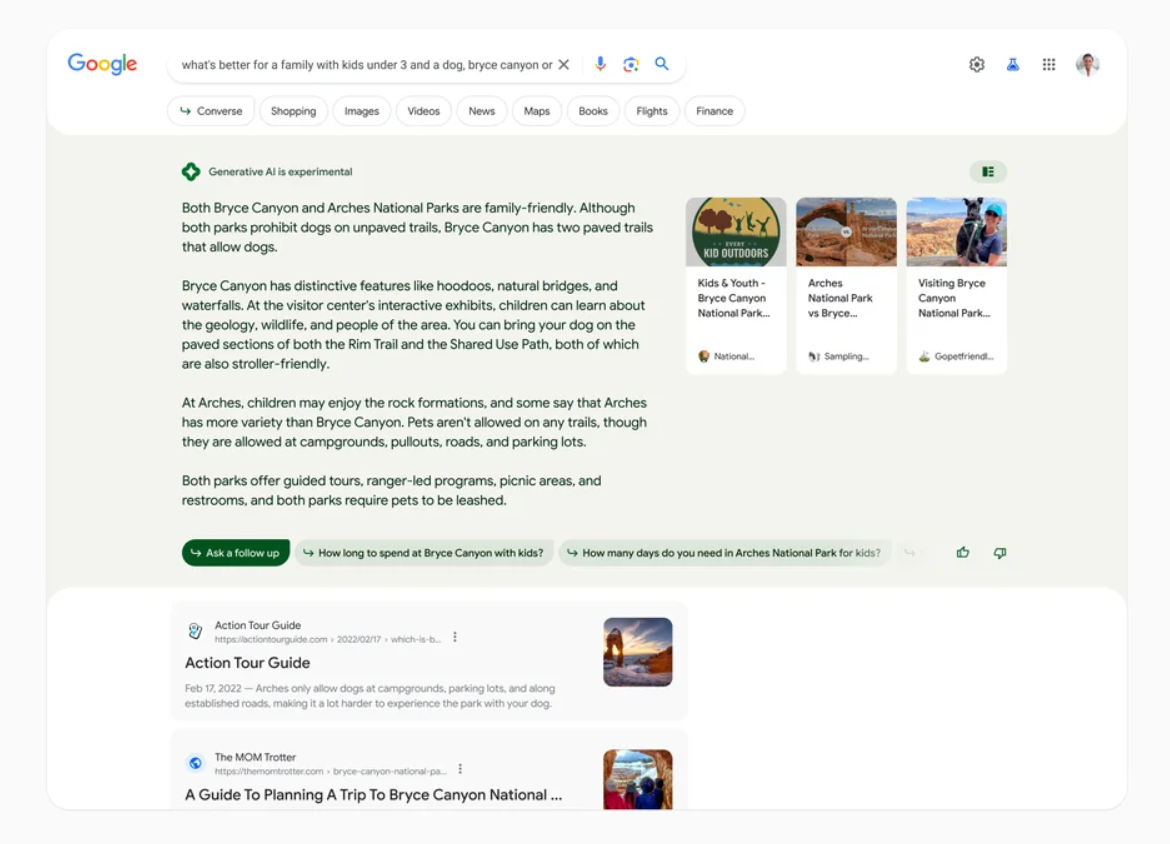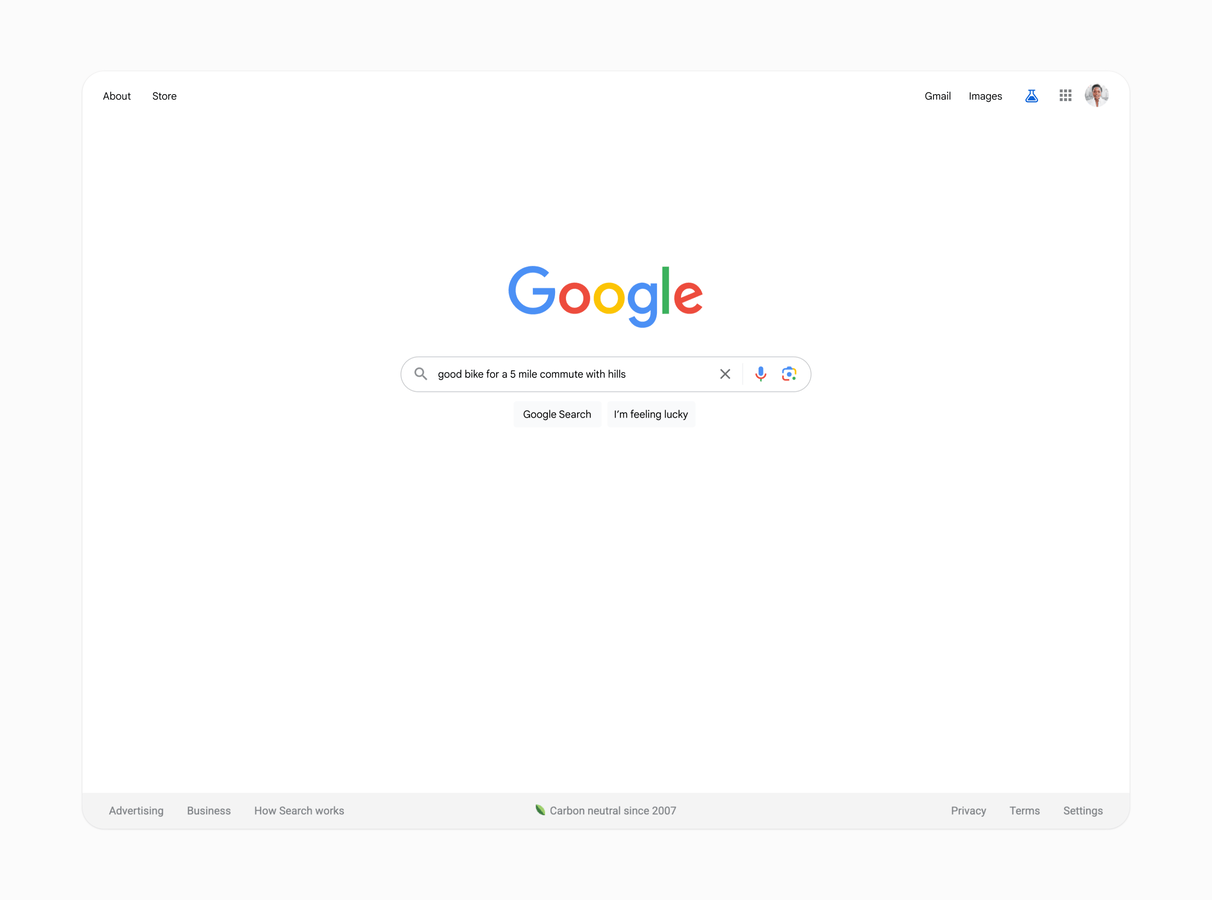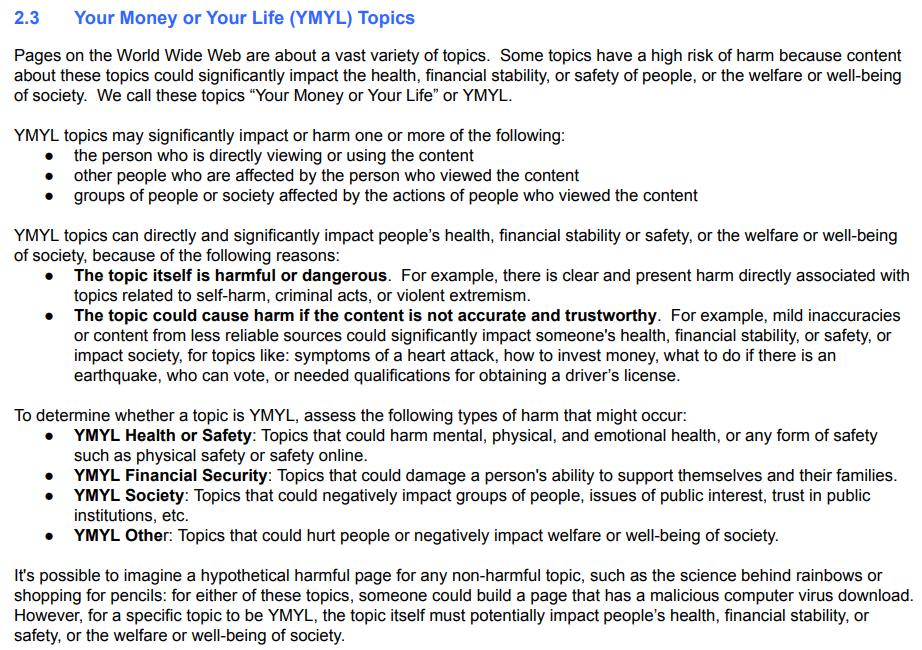Google's SGE: The AI-Powered Search Engine Revolutionising the Search Experience
Google has unveiled its new Search Generative Experience (SGE), a search engine powered by AI that provides more visual, snackable, personal, and human answers to search queries. The new search engine displays an AI-generated answer above the search results listing, with clearly labeled citations to the websites that were used to generate the answer. Users can click on these sites for further information, follow up with additional questions, or click on the toggle button to dive deeper into the topic.

The interface also displays clickable boxes with images that contain websites relevant to the search query. The color of the generative AI answer box changes to reflect specific journey types and the query intent.
The SGE can also pull in 35 billion product listings from the Google Shopping Graph, which updates 1.8 billion times per hour. This feature allows users to receive suggestions on which products to consider for specific types of products. Users can also follow up with their queries by adding more details or prompts to the Ask a follow-up box. The SGE uses AI to understand when a person is searching for something related to a previous question and carries over context from previous questions to reformulate the query.

Google stated that the new search experience uses a "variety of LLMs," including but not limited to MUM and PaLM2. This search experience was "purposefully trained to carry out tasks specific to Search, including identifying high-quality web results that corroborate the information presented in the output," Google added.
Google is cautious with the new version of Google Search and has limited its answers to safer queries. For example, it will not show an answer to a question about giving a child Tylenol because it falls within the medical space. Similarly, Google may not show answers to questions in the financial space.
Google is also expanding YMYL (Your Money, Your Life) categories to include civic information. The company has designed SGE not to unexpectedly shock or offend users with potentially harmful, hateful, or explicit content. SGE is held to an even higher standard when generating responses about certain queries where information quality is critically important.

Regarding "data voids" or "information gaps," where Google's systems have lower confidence in its responses, Google "aims not to generate an AI-powered snapshot." Moreover, for explicit or dangerous topics, Google will avoid generating a response.
While people trust answers that are given in a more fluid style, Google prefers to give answers that are more factual than fluid, as people are more likely to trust a factual response. Google is sensitive about not giving false or inaccurate information, especially on YMYL topics such as health and finance. The company intentionally constraints conversation to avoid hallucinations and maintain user trust.
For more information, watch A look at what’s next for AI and Google Search | Google I/O 2023



